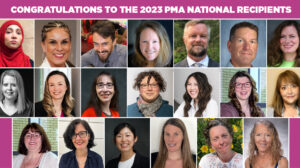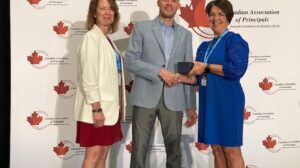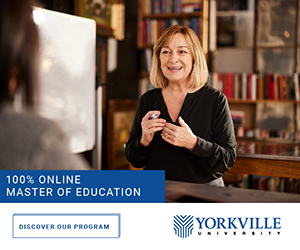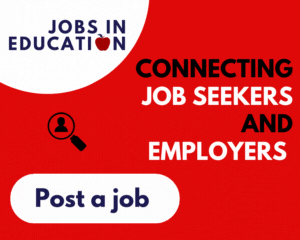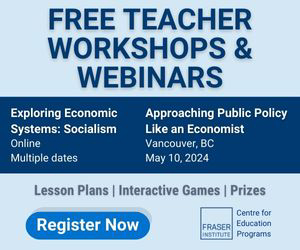Transition planning plays an important role in the collaborative support of students. Students with special needs experience multiple transitions throughout their education. Not only are there transitions when a student enters schools or changes schools, students experience transitions from grade to grade and even from class to class at the older ages. One of the most signification transitions that a student faces is when they leave high school to enter post-secondary education.
The BC Ministry of Education describes transition as follows:
The transition process for a student with special educational needs requires especially careful planning to ensure that the elements of the Individual Education Plan and the support services required to carry it out are not disrupted or lost in the process. (2016, p. 34 Appendix)
In Manitoba, it is recommended for transition planning out of school to start in the first year of high school and planning for post-secondary starts at least one year prior to graduation, which includes identifying and planning the academic support that a student will need to be success in post-secondary (Manitoba Government, 2010). Consider how and when your own school is participating in the collaborative process to support high school students with special needs on their transition to post-secondary. How can you ensure that the high school experience is valuable in the transition and that the post-secondary institute has the documentation they need for a smooth transition to meet academic support needs?
Make the Secondary Transition Experience Valuable
By the last year of high school, not every student is confident in what they would like to pursue academically or what type of career they are destined for. The importance of starting a transition plan early in the high school years allows the transition team to seek and create opportunities for students. For example, a student who is interested in French may decide to take a university level French course. Many institutions allow students aged 16 and up to take post-secondary courses prior to graduation.
Many school boards are innovative in creating work experience programs or dual credit programs, but these are not Canada-wide and may not offer what each unique student is looking for. Enhancing the transition of students can include skill development to ensure students are ready for the academic environment of post-secondary. The Government of Ontario (2022) suggests the development of self-advocacy skills, learning how to describe how their disability impacts their life at home and at school, learning about which accommodations are being used in high school in order to be able to notice and request these accommodations at the post-secondary level, developing research skills and how to use assistive technology, as well as skills for note taking, and organizing time and schools work.
Ensuring the Educational Documentation is Up to Date
The first term of the first year can often be a challenging transition for students who do not have their support and accommodations set up prior to the term start date. For students to obtain academic support in post-secondary, a resounding number of institutions across Canada require official documentation to support the needs. This is quite in line with the K-12 systems across our country. Institutions have policies that state, “documentation must be obtained from a professional who has specific training, expertise and who is experienced in the diagnosis of the condition for which the accommodations are being requested” (Northern Lights College, 2022, para. 5).
It’s important that as part of the transition, we check the requirements of the post-secondary institutions on who can receive support.
Educational institutions have a legal obligation to provide reasonable accommodations that promote equity for people who have disabilities. Given that each student’s needs are unique, services and accommodations are established on an individual basis and based on the documentation of the students disability. (Transition Resource Guide for Students with Disabilities, 2022, para 1)
Having a diagnosis does not guarantee that a student will receive academic support and accommodations (University of Victoria, 2022), while the University of Alberta sets the main criteria as the disability or chronic health condition to be permanent with documentation “that affect their mobility, vision, hearing, and physical and / or mental health” (2022, para. 1). Some institutions require up to date achievement measures to access a student’s academic functioning. Up to date ranges at no more than 3 years old for some institutions and no more than 5 years old for other institutions.
Medical documentation is required from professionals to diagnose and document physical or mobility, deaf or hard of hearing, neurological, psychiatric or mental health conditions, or learning disabilities. For learning disabilities, the following range of comprehensive assessments of intelligence or cognition or achievement tests have been identified to ensure students are able to receive accommodations directly in their first term of studies:
- Wechsler Individual Achievement Test: 2nd Edition (WIAT-II)
- Woodcock-Johnson-III Tests of Achievement (standard battery and extended battery depending on clinical judgment)
- Kaufman Test of Educational Achievement: 2nd Edition (comprehensive form)
Another consideration in the transition includes discovering that many post-secondary institutions do not carry over the document from year to year. In fact, many require students to advocate for themselves each year or each term to ensure their documentation is in place and their support and accommodations are set up. Even further, at some institutions, if a student needs an alternate format for readings, the pathway to achieving this is lengthy! If a student needs resources in digital audio, braille or even electronic text, the student may have to work months ahead of the term to contact an instructor for reading lists, then completing a form for each item… and waiting (University of British Columbia, 2022).
Transitioning our high school students with special needs to post-secondary is not a simple process. To be effective, transition teams need to start early ensuring students have opportunities to develop skills for the change in academic learning environment or even try out university courses before graduation. Reasonable accommodations are a legal obligation, however, the steps necessary to obtain accommodations requires up to date documentation and may require achievement tests. Each high school can transition students with special needs smoothly.
References
BC Ministry of Education. (2016). Special education services: A manual of policies, procedures and guidelines. https://www2.gov.bc.ca/assets/gov/education/administration/kindergarten-to-grade-12/inclusive/special_ed_policy_manual.pdf
Government of Ontario. (2022). Transitions from K-12 to postsecondary education. https://www.ontario.ca/page/accessible-transitions-students-disabilities-kindergarten-grade-12-k-12-workforce-community-and#section-3
Manitoba Government. (2010). Transitioning students with exceptional needs from school to community. https://www.edu.gov.mb.ca/k12/docs/policy/transition/web/index.html
Northern Lights College (2022). Access services. https://www.nlc.bc.ca/Services/Access-Service
Transition Resource Guide for Students with Disabilities. (2022). Transition to post-secondary education. https://www.transitionresourceguide.ca/
University of Alberta. (2022). Eligibility for academic accommodations. https://www.ualberta.ca/current-students/academic-success-centre/accessibility-resources/register/eligibility.html
University of British Columbia. (n.d.). Types of academic accommodations. https://students.ubc.ca/enrolment/academic-learning-resources/academic-accommodations-disabilities/types-academic-accommodations
University of Victoria. (2022). Accessible learning. https://www.uvic.ca/accessible-learning/students/how-to-register/index.php?utm_medium=redirect&utm_source=/services/cal/onlineservices/register/assessments/index.php&utm_campaign=redirect-usage
AUTHOR BIO:
E.D. Woodford is a former Principal. She currently teaches Graduate Studies for Queen’s University and is online faculty at Thompson Rivers University.


